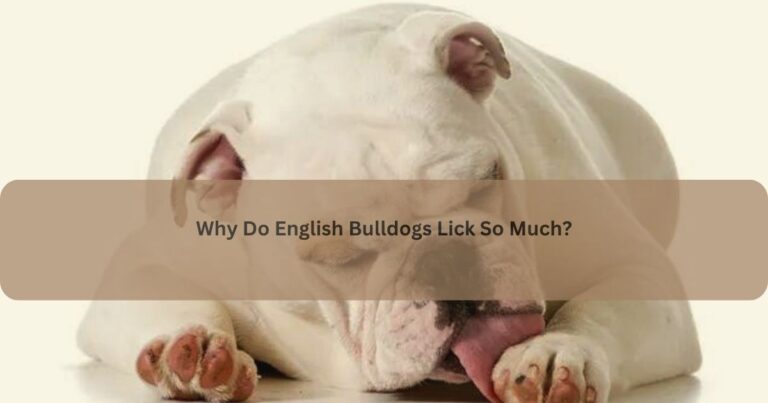Why Is My English Bulldog Losing Patches Of Hair?
English bulldogs are known for their adorable wrinkles, droopy faces, and stocky bodies. However, if you’ve noticed patches of hair missing from your furry friend’s coat, it can be a cause for concern. Hair loss in English bulldogs is not uncommon but can be indicative of an underlying issue that requires attention. We will explore the possible reasons why your English bulldog might be losing patches of hair and what you can do to help them get back to looking their best.
Causes Of Hair Loss And Bald Spots In Bulldogs
Allergies are one of the leading causes of hair loss in English bulldogs. Your furry friend may be allergic to anything from food to pollen, dust mites, or even flea bites. If your dog is scratching excessively, has red and itchy skin, or has ear infections, allergies might be the culprit.
Mite infestation can also lead to patchy fur loss in Bulldogs. These pesky parasites nestle along with the dog’s hair follicles, causing irritation that leads to excessive scratching and biting as they try to relieve themselves from itchiness.
Black Hair Follicular Dysplasia (BHFD) is another possible reason for your bulldog’s losing patches of hair. BHFD occurs when hair follicles become inflamed, resulting in scarring, which eventually leads to permanent hair loss.
It’s essential to always seek veterinary advice if you notice any unusual shedding patterns in your bulldog, as early diagnosis will help identify underlying issues promptly.
Allergies
Allergies are a common cause of hair loss in English bulldogs. Just like humans, dogs can develop allergies to various environmental factors such as pollen, dust mites, and molds. Food allergies can also be a culprit behind hair loss in bulldogs.
When an allergy triggers an immune response in the dog’s body, it can lead to itching and scratching which eventually leads to patches of baldness. In some cases, excessive licking or biting at certain areas may also occur.
To diagnose whether your bulldog has an allergy or not, you should visit the veterinarian, who will perform thorough testing to pinpoint exactly what is causing the reaction. Once diagnosed with an allergy, treatment options include avoiding allergens altogether if possible, or administering medication prescribed by your vet.
It’s important to note that allergies cannot be cured, but they can be effectively managed with proper care and treatment.
Alopecia Or Seasonal Flank Baldness

Alopecia, or seasonal Flank baldness, is a common cause of hair loss in English Bulldogs. This condition usually affects the sides of their bodies and can occur during specific times of the year, hence its name.
The exact cause of alopecia, or seasonal flaring baldness, is not known, but it’s believed to be related to hormonal changes that happen during certain seasons. The good news is that this condition doesn’t typically require treatment, as the hair will grow back on its own once the season changes.
Although it might look concerning for pet owners, alopecia, or seasonal baldness, is considered normal behavior for bulldogs and should not be a source of worry. However, if you suspect your dog has other symptoms such as itching or skin irritation along with bald patches, it’s essential to take them to a veterinarian for further examination.
While Alopecia or Seasonal Flank Baldness may seem alarming at first glance, it’s generally nothing serious and tends to resolve itself without intervention.
Mite Infestation
Mite infestation is a common cause of hair loss in English Bulldogs. Mites are tiny parasites that live on the skin and fur of dogs, feeding on their blood and causing irritation and itching.
There are several types of mites that can affect bulldogs, including Demodex mites, sarcoptic mange mites, and Cheyletiella mites. Demodex mites are normally present on the skin of healthy dogs but can overgrow when there is an underlying health condition or weakened immune system. Sarcoptic mange mites cause severe itching and inflammation, while Cheyletiella mites cause dandruff-like flakes on the skin.
Symptoms of a mite infestation include intense itching, redness or bumps on the skin, scabs or crusts around affected areas, and hair loss in patches. If you suspect your bulldog has a mite infestation, it’s important to take them to see a veterinarian as soon as possible for proper diagnosis and treatment.
Treatment options for a bulldog with a mite infestation may include medicated shampoos or dips, topical medications such as creams or ointments, and oral medications such as antibiotics or anti-parasitics, depending upon which type of parasite it is. It’s essential to follow your vet’s instructions carefully throughout treatment to ensure the successful eradication of these pesky parasites!
Black Hair Follicular Dysplasia
If you are an English bulldog owner and your furry friend is losing patches of hair, it’s important to identify the root cause. While allergies, alopecia, seasonal flank baldness, and mite infestations are common reasons for hair loss in dogs, black hair follicular dysplasia is a genetic condition unique to Bulldogs.
If you suspect that your Bulldog may be suffering from this condition or any other medical issue related to their skin or coat health, consult with your veterinarian as soon as possible. With early detection and proper treatment, you can help restore your furry friend’s healthy coat and overall well-being.







